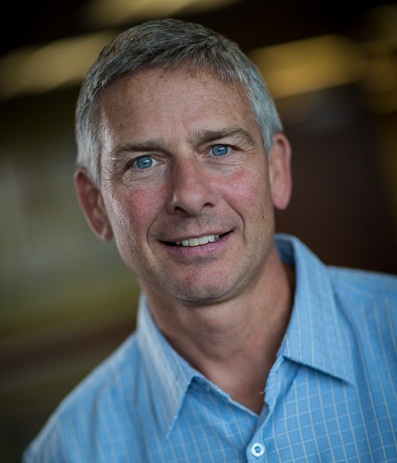
Jim Sibthorp, PhD, is a professor in the Department of Parks, Recreation and Tourism. His research involves youth in recreation settings including outdoor expeditions, summer programs, and camps. His lab group studies the impacts of outdoor education and recreation on youth and emerging adults. Sibthorp is currently funded by The John Templeton Foundation to study similarities and differences in Outward Bound programs around the world. He's conducted some of the leading research in the field of outdoor recreation and summer camps, and is published consistently by top journals like the Journal of Leisure Research and Leisure Sciences. Beyond those accomplishments, he's co-authored Outdoor Adventure Education: Foundations, Theory, and Research, a comprehensive text that provides the basis for the next generation of professionals.

-
Why did you decide to pursue your line of research?
I began my career as an outdoor educator while teaching scuba diving and boating safety for academic field semesters in marine biology, marine geology, and nautical archeology. As the students completed their scientific expeditions, they often described transformational experiences related to group dynamics, overcoming hardships, or personal introspection rather than academic content. This inconsistency motivated me to learn more about individual and group growth through the outdoors.
-
What sort of training did you need to get into your current specialty?
It was a combination of training. While my PhD from Indiana University is in Human Performance, I specialized in Outdoor Adventure Education and Youth Development. I also worked professionally in the field at various levels. As a lot of outdoor education occurs over the summer, I worked seasonally in the field for about 20 years after becoming an academic.
-
How would you give an “elevator pitch” about what you research, to someone who doesn’t have any background knowledge?
Youth need to try new things, get off their devices, make meaningful social connections, and test their limits. Being in the outdoors—backpacking, rafting, camping, sailing—provides authentic, engaging, and enjoyable spaces for youth to grow. Youth are willing to work hard to navigate and negotiate authentic challenges—social, emotional, physical—because they seek the excitement, the camaraderie, and, paradoxically, the challenges. Our lab studies how to maximize the potential of these outdoor programs across cultures and contexts.
-
What are you most proud of in your research career?
I am most proud of the legacy of graduate students I’ve been fortunate enough to mentor. They have pushed me to learn new things and explore new ideas. They bring energy, enthusiasm, and questions to our research that are easy to lose over time. Beyond that, I am proud of our long-term partnerships with practitioners. Ultimately, they must translate and use the research for it to make a difference.
-
What’s your biggest research goal over the next five years?
We continue to wrestle with how to best provide access to high-quality programs for all youth. Funding for extracurricular programming, often intrinsically interesting to youth, is inequitable. Affluent communities and families have far greater choice and access to high-yield recreation and leisure. Any research evidence contributing to policy and practice decisions that increase access is a win.
-
How does your research tie into the College of Health’s goal of redefining the human healthspan?
A lot of our research is about identity development through recreation. We can couch that in different ways, but you can’t lead a full life until you know who you are. We are often our most authentic selves during leisure and play. If you want to get the most life out of your years, use the energy you gain from your passions to propel you through the drudgeries—and reach your goals. If you aren’t enjoying life, the incentive to add more years may be insufficient to inspire change.